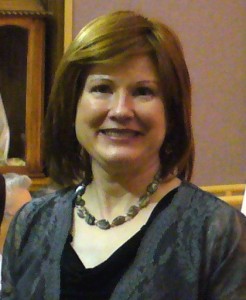 After nearly 15 years with lupus, I’ve come to realize that the journey with the disease moves along much like the seasons of the year. Spring, full of energy and promise and new things, is much like the early days of getting the diagnosis. After a long time, you finally know what is wrong (and are validated that, yes, there is something wrong, even though many people told you it was “all in your head”). Spiritually, you’re full of praise and thanks – God’s finally answered your prayer and you know what’s wrong!
After nearly 15 years with lupus, I’ve come to realize that the journey with the disease moves along much like the seasons of the year. Spring, full of energy and promise and new things, is much like the early days of getting the diagnosis. After a long time, you finally know what is wrong (and are validated that, yes, there is something wrong, even though many people told you it was “all in your head”). Spiritually, you’re full of praise and thanks – God’s finally answered your prayer and you know what’s wrong!
Next comes summer, when the heat is turned up and the days are longer, muggier, and you really begin to feel what life with lupus is about and how drastically it will change your “regular” self and routine. You pray for guidance. Perhaps you pray for better doctors. You pray that the labyrinth of insurance and other paperwork will get sorted out. You pray your loved ones will understand and stand by you.
With the realization that lupus is chronic, from “summer,” you move into autumn. The days are chillier and you feel it in your joints and bones. The sunlight, which you enjoyed before your diagnosis, is much less present, and you feel less cheery. But, you cannot sit idle. After allowing yourself to rest during the “spring” and “summer” phase, you begin to seek more medical opinions, advice from other lupies, information from books and the Web. You are restless and not so very happy that this chronic illness is, well, chronic. You might pray more that God will heal you, take away the disease, or at least lift much of its burden from your shoulders.
“Winter” is, for me, much like being in the depths of a flare. The pain is worse, the disease activity is ramped up, and the meds are, perhaps, increased. But relief seems a long ways away. If it will ever come. God, at a time like this, might seem far away. It might become more difficult for you to emotionally desire to give thanks or praise Him. You might be too tired to pray at all.
But, then, the flare subsides. Your emotions thaw. You begin to have a little more energy. You can see the early-spring green emerging from the hard-packed, cold ground.
The beauty of thinking in terms of seasons is that we can understand a bit more about the swings we go through as we live years with a chronic illness. Although it might seem difficult to believe at times, there is a cycle to it, and there are ups and downs. And, especially, the more we understand that the lows we feel will not be forever, the more we can rest in the faith that God stays with us throughout and is always ready to comfort us, even in the coldest winter.
Blessings for the day,
Maureen

